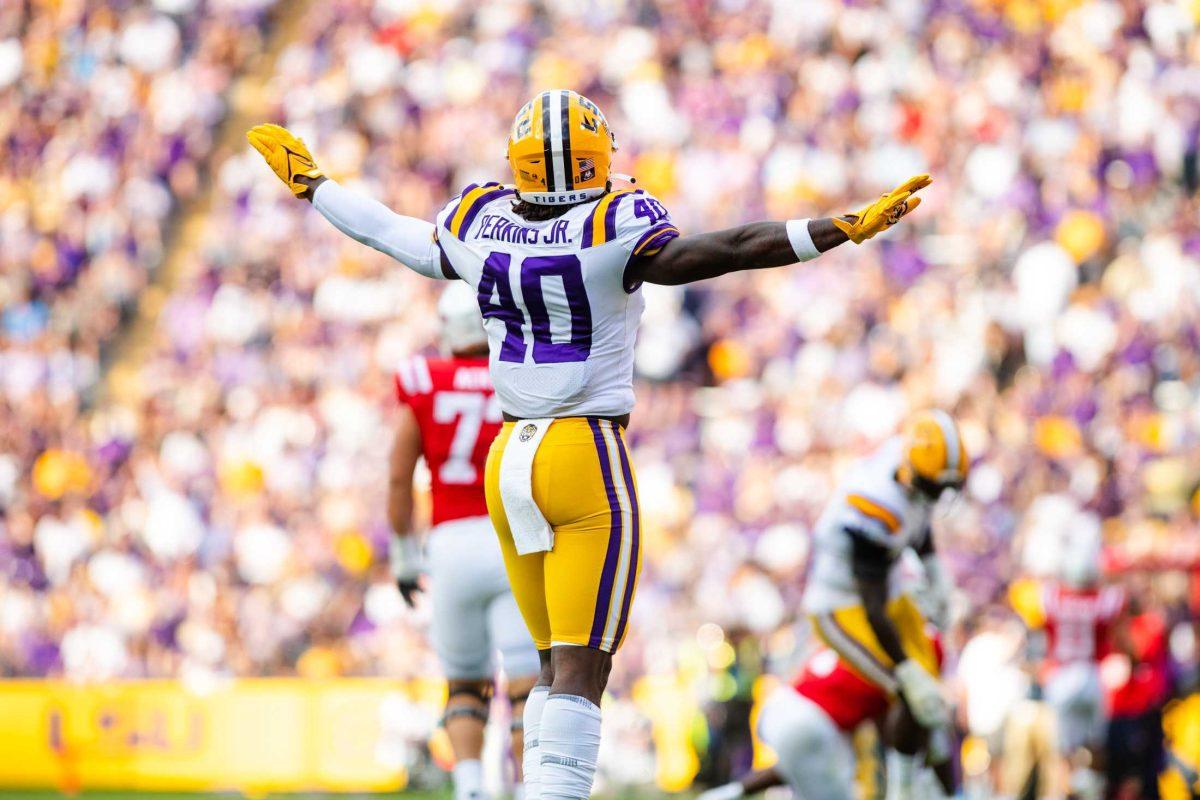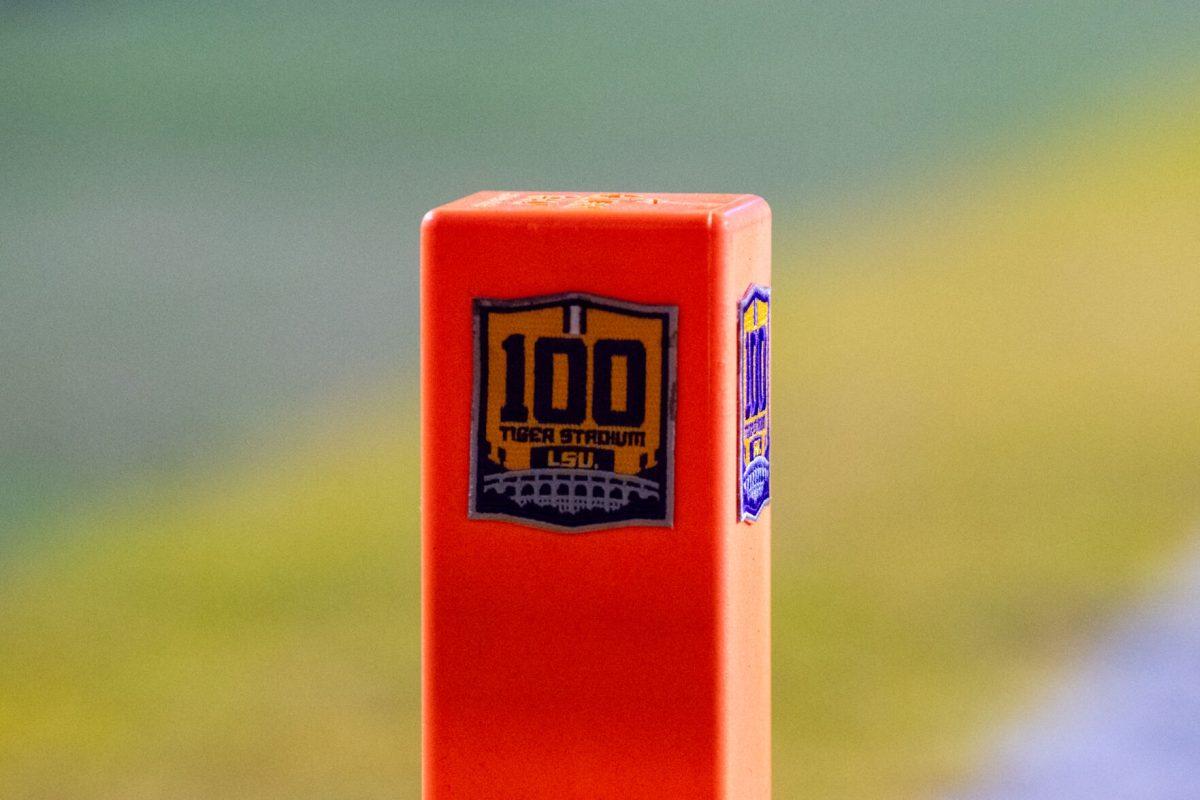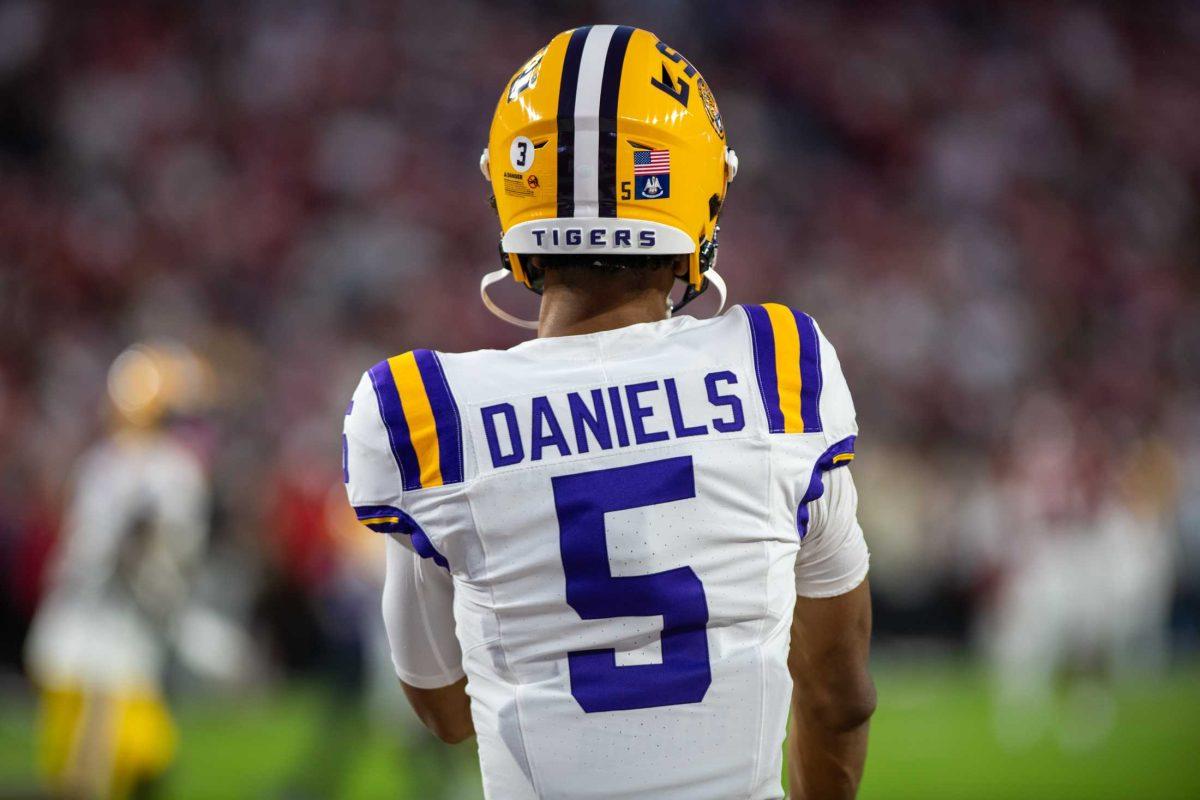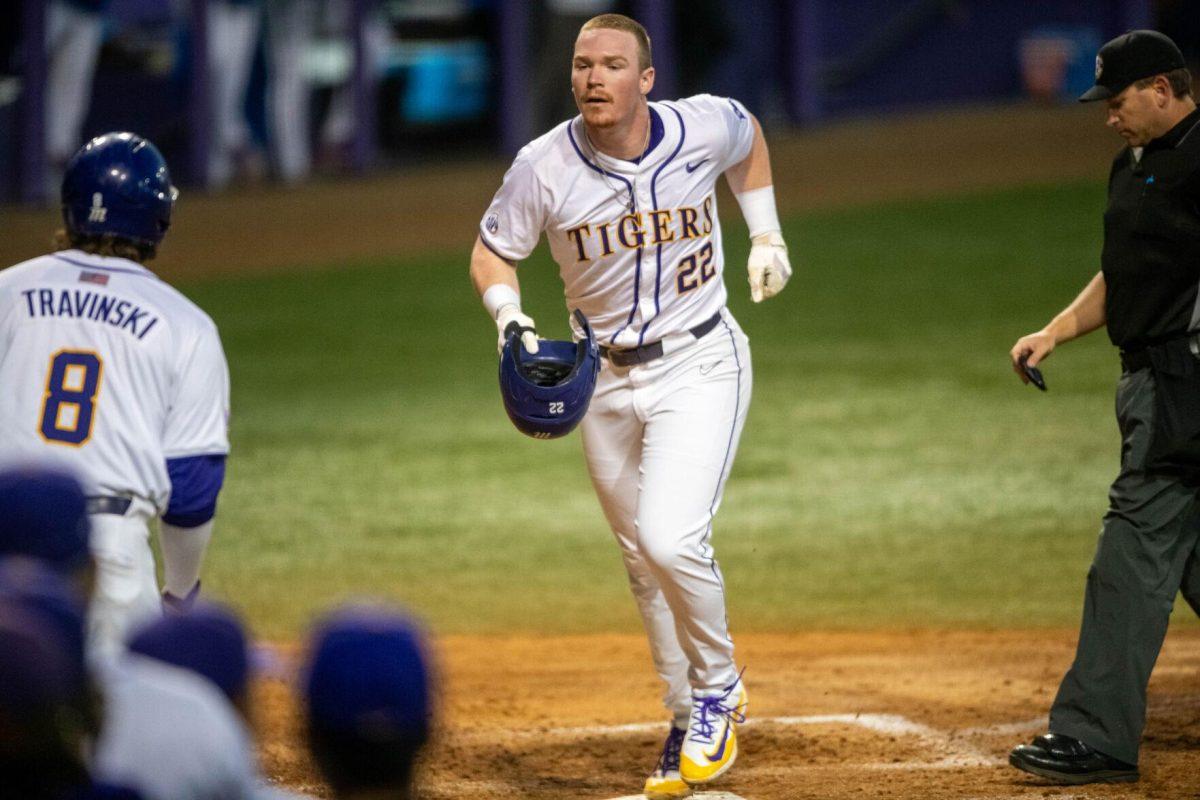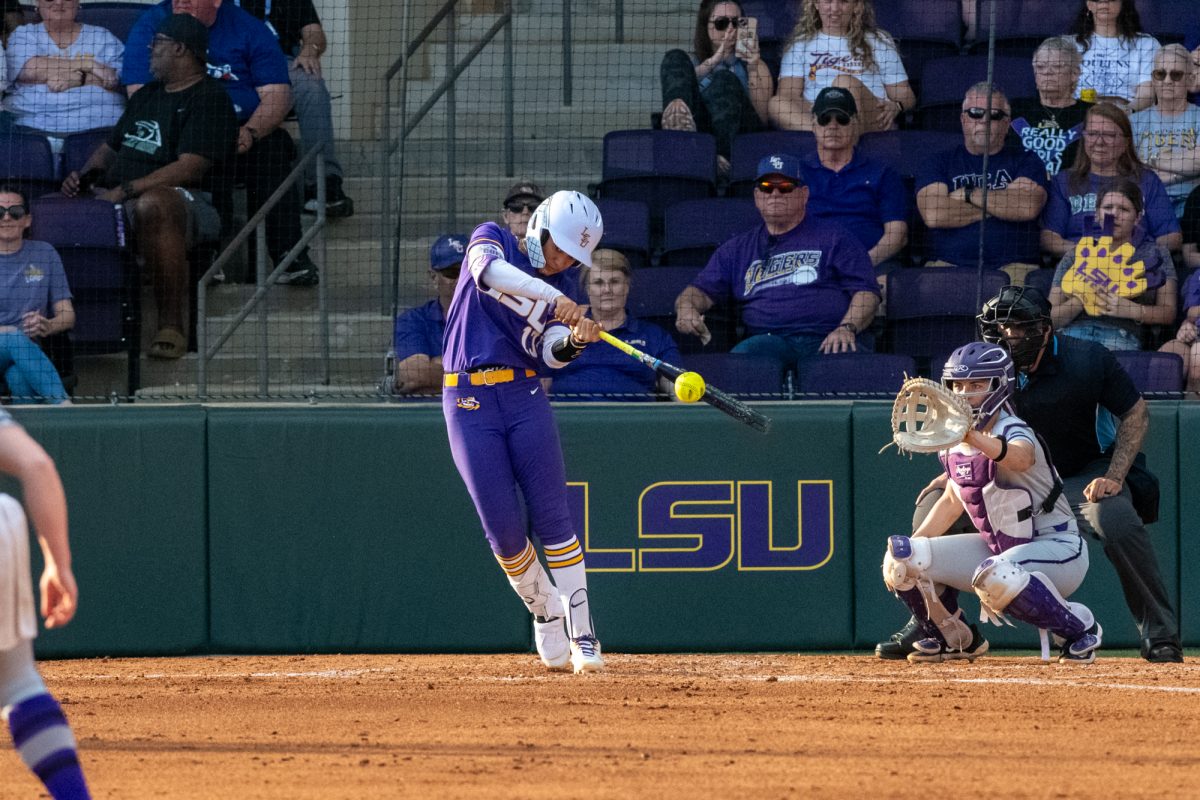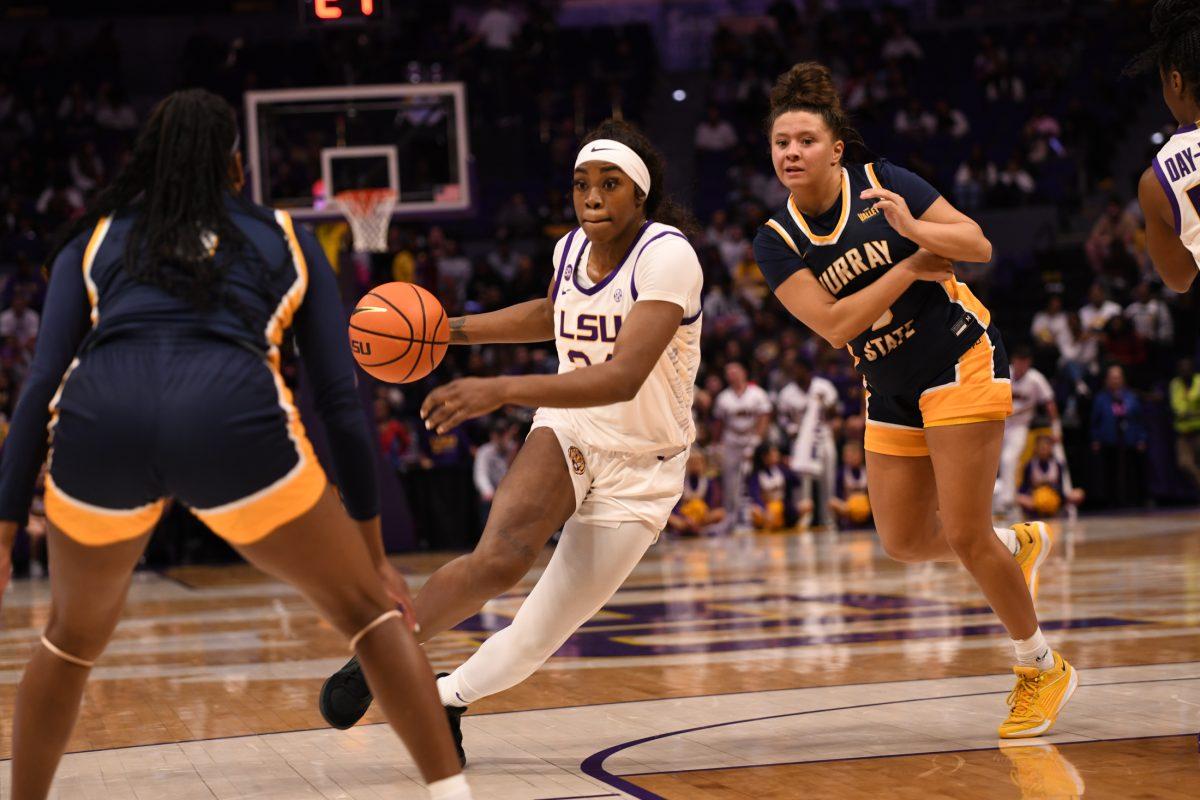Harold Perkins has become a household name in just a few short weeks, going from the freshman everyone was wondering about to one that fans predicted would become one of the LSU greats by the end of his college career. But heading into the game, his coaches and teammates likely wondered why he wanted to suit up.
He had come down with a classic case of the flu, a virus that deters people from getting out of bed, much less play in a college football game at the highest level.
Michael Jordan did it in 1997, Magic Johnson in 1988 and Joe Montana while at Notre Dame in the 1979 Cotton Bowl. But Jordan and Johnson were well into their careers and playing in the postseason and Montana was playing in the last game of his college career. Perkins was a freshman playing in a regular-season game with temperatures he wasn’t accustomed to, growing up in Texas.
But no news came out on an injury designation. In fact, no one outside of the team knew what was going on. No one had any reason to speculate that was the case either.
Despite playing under the weather, Perkins had the best game of his career. In a game where the offense could barely crack the scoreboard, with the pass game never getting it going and the play calling being questionable at best, LSU needed its defense to step up to remain on its path to the SEC Championship.
It did just that, with Perkins serving as its catalyst.
His impact started early in the second quarter, with a short field at the LSU defense’s back and a three-point deficit. Facing a third-and-long, Arkansas quarterback Malik Hornsby scrambled left with Perkins trailing him. Hornsby is one of the quicker quarterbacks in the SEC and is known to be a shifty, effective runner, but Perkins was faster than him on the play. He tracked the quarterback down, accelerating at the point of attack and forced a fumble on the tackle.
LSU wouldn’t have the best ensuing drive, but with the team starting on Arkansas’s 37-yard line and Daniels breaking off a 20-yard run to place the Tigers in the red zone, it was finally able to crack the scoreboard, tying the game with a field goal. From that point forward, Perkins was everywhere.
Through the second and most of the third quarter, he would terrorize Hornsby, likely resulting in his eventual benching late in the third quarter, as the Arkansas coaching staff opted to put in third-string quarterback, Cade Fortin. With each offense remaining stagnant, every possession mattered, and it seemed like every time the team needed him, Perkins delivered.
His teammate, linebacker Micah Baskerville, even called him a superhero.
“When somebody needs him to save the day, he’s there,” Baskerville added.
That rang true late in the fourth quarter. Fortin had provided the Razorbacks with a brief spark that had them very much in the game heading into the final few minutes. Trailing 13-3, he led by far the longest drive of the day for either team, a 10-play, 94-yard touchdown drive that had them within three with nearly an entire quarter left to go.
After a few more stagnant drives from both teams, Arkansas received the ball with 1:35 remaining in the game. Fortin completed a pass for 14 yards, got set to throw another one, then never received the ball again. By the time he had set to throw, Perkins was already on him, forcing his second fumble of the game, which was recovered by Mekhi Wingo to ice the game.
The freshman finished with eight tackles, four sacks and two forced fumbles on the day, all done while battling flu symptoms. In a game where LSU played terribly and could not afford to lose, a freshman with the flu essentially saved its season.
“We win the game because of his final play,” Kelly said on Perkins. “I don’t think there are enough superlatives to talk about the young man, as a true freshman coming into to his own. As you can imagine, he was awarded the game ball.”
Fans should probably get used to hearing his name called many, many times throughout the next three seasons of LSU football. After that game, there’s no question he’ll have a vital role on this LSU defense.



